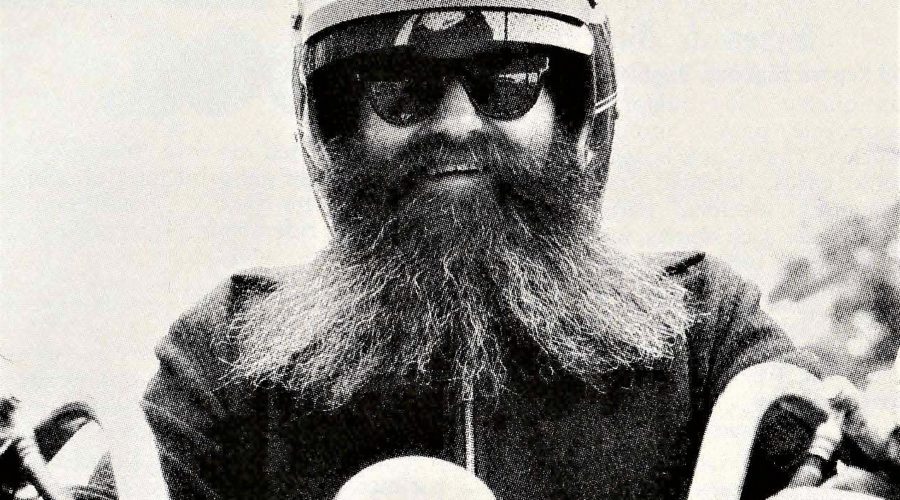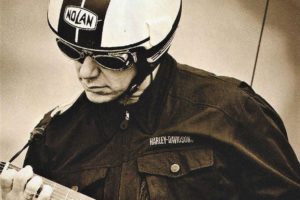Solitary Man
Hello campers. I’ve been reading several past columns of mine and l must admit I laughed a hearty laugh. They’re good … and if they’re not good at least they’re an assemblage of my thoughts at the period of time in which they were written.
You see, I can remember the short period of time in which they were written. I don’t remember the shorter period of time in which they were read. You did that. I was nowhere around at the time.
And the reason I’ve been reading said columns is that I’ve also been reading H.L. Mencken’s theory of life. And it’s a beauty.
What Mr Mencken said was that in life all people spend the majority of their time alone. With that in mind I’d better give you a quick rundown on H.L.’s life so you can understand where he’s coming from.
H.L. Mencken was a bit of a genius in the written word business. He was a writer of no mean ability who rose to be the esteemed editor of a newspaper in the Baltimore area of the Ewe Esse Arvay and was doing damned fine at it until he had a stroke.
Unfortunately, after he had recovered sufficiently to get about as per normal, he discovered that said stroke had removed his ability to understand the written word. All forms of wrote writing were to him like chicken tracks in wet sand, and he didn’t understand a word of it. Or about a half-metre of it. And he lived for 18 years after the stroke.
For those 18 years he had a mere handful of visitors as opposed to the zillions of people who had made their way to his door before the stroke. Once a week the newspaper would send a secretary around to collect his weekly column, which he would dictate to her upon her arrival. Then every month his brother August would visit and the two of them would collect wood in the alleys around his house to be broken up by H.L. whenever. Also, he would be visited by a handful of friends whose names tended to be missing from his tongue but present in his head. These were the social commentator Alistair Cooke, the author James T. Farrell, the drama critic George Jean Nathan, the publisher Alfred Knopf and others. But mostly he stayed inside his house alone, except for his housekeeper.
lt must have been boring (and here l mean unutterably stultifying) in the extreme. He was wont to say to those visiting him, “Remember me to my friends. Tell them I’m a hell of a mess.”
You see, he was a hell of a mess, but the majority of his ‘friends’ didn’t know and didn’t care. Or they did know and stayed away in order not to inflict his illness upon their sensibilities.
Indeed, apart from his lack of understanding of the written word, there was very little wrong with him, aside from a rapid greying of his hair and a general slowing in his walk and talk.
And what I’m trying very hard to avoid saying is, to paraphrase Marion Michael Morrison, “Goddamn, he reminds me of me.”
I know how H.L. felt. My days are short and full of stuff hanging over my head from years ago. I sit and stare at the tons of tools and books and machinery that once meant something to me, but are now the ephemera of dreams. On the odd day that a visitor may come to share my humble abode I find myself barely able to talk to them, barely able to make them laugh — the first of the Principia Smithiae.
When we walk up to the Quirindi cafe for a feed (since the Smith cookometer has gone the way of all the things electrical) I can see the look on my companion’s face gradually go from amused to curious to puzzled as I try to explain that I am happy in my isolation and, contrary to that, he (or she) is welcome to stay for as long as he (or she) wants.
Usually when we get to the cafe they have a cup of coffee and say that they can’t stay, it was good to see me in such rude health and they’d keep in touch. Then they’d go. Usually toute de suite. And the tooter the sweeter. And they don’t keep in touch.
Oh well, l can understand it. I can understand the desire not to associate with what appears to be a disease of the brain. I can understand the under-the-skin feeling of withdrawal from a person who appears to be the intelligent person one used to know but now, through their speech, is displaying the decaying of their mental powers and the dissolution of their previous clarity. I can understand their dismay and disappointment … and their desire to be elsewhere.
So I sit here quietly and look around. I think about the piles of everything that are everywhere and I think about bikes. And I think about the cash that I invested in all of the junk lying about the place.
I mean, the cash was invested in little bits and pieces and the junk was accumulated in little bits and pieces, but now the piles of junk are large and the cash investment is considerable. And I dream of all the bikes l could have bought with the loot I frittered away on bits of plastic. (Like V-Maxs … I like V-Maxs.)
In this respect I’m not the same as H.L. Mencken since H.L. had a stroke which removed from him the one thing he loved — the ability to read. I’ve had a few strokes which took from me my ability to speak and express myself clearly. While these abilities were very close to my heart (especially in terms of allowing my wit freedom to reign), l didn’t miss out on very much at all. In fact, using the ability to type (something I’m very grateful to my years in the big adding machine biz for teaching me) I can now slowly get rid of my Piles O’ Crap over the net in exchange for Moolah.
And then, like H.L. Mencken, I can live alone, solitarily and by myself … with a big motorcycle. For, unlike H.L., I can still ride. And I’d like a big motorcycle. Like a V-Max.
Cop you later.
By Peter Smith. Two Wheels, May 2005




